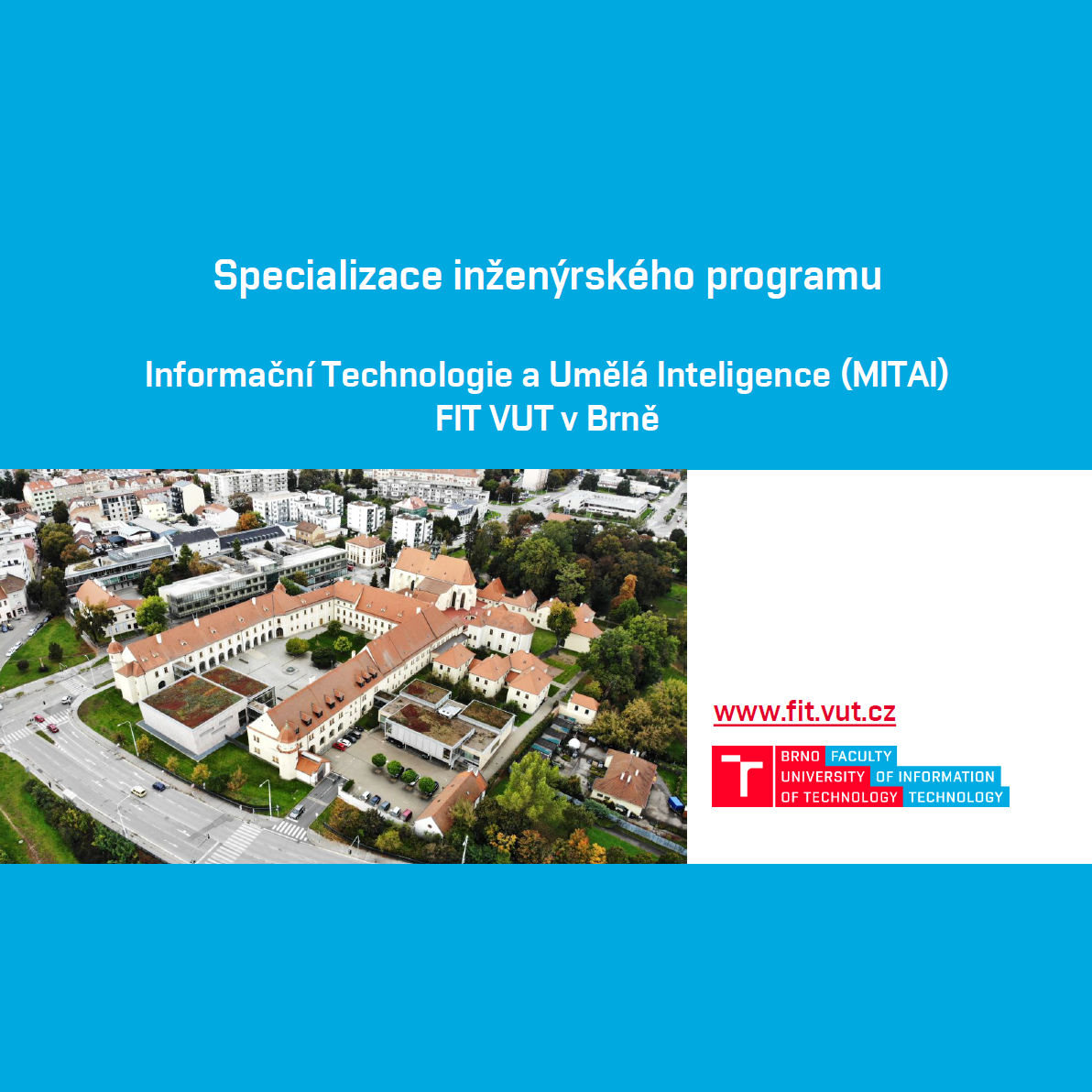Information Systems and Databases
Acad. Year 2023/2024Full-Time Study2 Years Title Awarded Ing.
Within the Information Systems and Databases specialisation, you will learn about the theory, technologies and procedures used to develop information systems. In addition to theory, you will learn to develop such systems using modern development tools, methods and technologies. You will learn how to develop web applications and applications in a distributed environment. Upon completion of your studies, you will be prepared to design, operate and manage information systems. You will also become familiar with the technologies and important standards used in the design of information systems. You will be sought after by companies developing or operating software systems - for example, local government, the military, education, healthcare and all industrial enterprises.
Information technology moves the world
-
79 %
students gain practical experience
-
98 %
students successfully pass the State Final Examination
-
99 %
graduates find work in the month
-
40 938 Kč
is the average starting salary for graduates
1st Year
Compulsory Programme Courses - Winter
Compulsory Programme Courses - Summer
Compulsory Specialization Courses - Winter
Compulsory Specialization Courses - Summer
The common basis of the programme
The common core of the program consists of courses that will give you the knowledge important for all IT engineers:
- Computation Systems Architectures will teach you how to think about how your code will run on modern computing platforms, how to think about programming in a way that makes the most efficient use of resources, i.e., that your application makes the best use of the power of modern platforms, makes efficient use of system memory resources, and is also efficient in terms of energy consumed.
- Functional and Logic Programming will teach you that although classical imperative programming is a very widely used paradigm and is very close to machine-level implementation, there are other approaches that will give you a new perspective on some key problems and help you get novel and often more efficient solutions to them.
- Modern Trends in Informatics (in English) you need to know to see where the field is going and what to expect in practice in a few years.
- Parallel and Distributed Algorithms is a course that will show you the patterns, limits, and pitfalls of parallel and distributed algorithmic solutions and the associated synchronization mechanisms, without which you will hardly succeed in solving many of the more complex problems.
- Statistics and probability is the right hand of every engineer to process numerical results of experiments or data obtained while running your application, analyze them and learn from them to make further decisions is almost his daily bread.
- Theoretical Computer Science shows the limits of computer science capabilities through formal languages and mathematical models of computation. This is the only way to understand whether your problem is even solvable and, if so, with what resources and means to prove it.
- Data Storage and Preparation, especially big data, and extracting knowledge from it is a valuable art to any computer scientist. It is a key aspect that strongly influences the effectiveness of many solutions and applications.
- Artificial Intelligence and Machine Learning is a course where you will learn how to teach computers to understand our world and make them solve problems that are easy for humans but difficult for an algorithmic machine to handle.
They will pass on all their knowledge and hold you in difficult moments
Doc. Dr. Ing.
Kolář Dušan
Dušan Kolář is the head of the Department of Information Systems. During your studies, you will meet him in the courses Advanced Database Systems and Functional and Logic Programming. He focuses on formal languages, their processing and reverse translation (eg in FIT/Avast cooperation).
Doc. Ing.
Burget Radek
Ph.D.
Radek Burget focuses on everything related to the design and implementation of web information systems and applications. He teaches the subject Information Systems (both bachelor and master level) and Web Design. He likes to explore new technologies on the server and client side. His research focuses on automatic information extraction from web documents.
Prof. Ing.
Hruška Tomáš
CSc.
Doc. RNDr.
Kreslíková Jitka
CSc.
What are we talking about?
-
Food and the ways in which we obtain it can seem like an utterly mundane matter, associated with necessity rather than creativity. For many people on the planet, regular access to food is not a given, and for those who have it, it is associated with mundanity. …
-
She was discouraged from studying computer science, but today she is gaining success in the field of quantum circuit simulation
First place in the 8 z VUT competition, inclusion of the bachelor thesis in the programme of a prestigious international informatics conference. These are just some of the successes celebrated by Sára Jobranová, a student of the Master's programme Information Technology and Artificial Intelligence at the Faculty of Information Technology BUT. …
Come to FIT!
Other Master
Specializations
-
Application Development
-
Bioinformatics and Biocomputing
-
Computer Graphics and Interaction
-
Computer Networks
-
Computer Vision
-
Cyberphysical Systems
-
Cybersecurity
-
Embedded Systems
-
High Performance Computing
-
Information Systems and Databases
-
Intelligent Devices
-
Intelligent Systems
-
Machine Learning
-
Mathematical Methods
-
Software Engineering
-
Software Verification and Testing
-
Sound, Speech and Natural Language Processing
